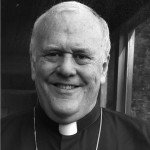GlobalView from Bishop Bill Atwood
Many people wonder how the Anglican Church in such Provinces as Kenya, Uganda, and Rwanda has managed to have such stellar fruit in church planting. It is certainly true that church growth was dramatically impacted by the East African Revival, but that is by no means the only factor. There are a number of places where the primacy of the Anglican Church was well established, but lost as the church shrunk and moved away from Biblical authority. Inheriting a revival is a great thing, but it is an inheritance that can be squandered. (I’ll resist the temptation to name names, though my sinful heart is tugging at me to do so…)
It is true that discipleship in East Africa has been less robust than it should have been, a situation that continues to be addressed, but there is a lot of evangelism and discipling nonetheless. There was also a great deal of wisdom in how the leaders in East Africa went about planting new parishes. The concept grows out of an understanding of the Doctrine of Incarnation, and a rejection of the false dichotomy so many western Christians have embraced that divides things secular from things sacred. In fact, neither the Scriptures nor Christian heritage make such a distinction. The witness is actually against a kind of delineation that seeks to bring some things under the influence of the Church and leaves other things to themselves. It is one of the more broken sides of Dispensationalism.
Instead, the model that has been used successfully in Kenya and other places for planting new Parishes is a comprehensive ministry centered on a bore-hole (water well), that is surrounded by a Church, a farm, a medical clinic, and a school.
The idea is that the Parish will impact the area holistically. It is a work to extend the Kingdom of God and His dominion. When this takes place in a healthy way, it is Incarnational ministry, fleshing out the principles of the Kingdom in the same way that Jesus fleshes out God the Son, that Christ is manifest in the life of the believer, and that believers gathering together flesh out Christ as His body. That body, when operating with fidelity and the power of the Holy Spirit, fleshes out the Kingdom so it can be seen in health, food, water, medical care, and education.
Holistic Parish ministry will soon be even more desperately needed. Within a few weeks, a new crisis is coming to Western culture. The United States Supreme Court is about to release their ruling on same-sex marriage. There is a whole range of possibilities of what they might decide, but most pundits assume that they will affirm same-sex marriage. If the predictions are right that it will be approved, then the question is on what basis they will make the decision and how far it will go. The most radical path would be to declare homosexual behavior to be a “protected class” in the same way that race, for example, has been protected. Of course it is proper for people to be protected from discrimination against them based on race, but protecting orientation is another matter. It is almost impossible to describe a protected class based on inclination. How can that be measured? In this case, it would be the basis on which legal status would be determined. That is not to say that it is impossible for them to make that leap. Recent years, however, have seen other leaps beyond precedent, like “privacy” for abortion and ending school prayer. For many reasons, fundamentally changing marriage has huge implications. It will bring a huge assault against the Church.
First of all, the main behavior proscribed by Scripture in regards to same-sex relations has to do with the prohibition of the behavior of same-sex sexual intimacy. As I’ve mentioned before (and will again and again!) God’s wisdom in that prohibition is demonstrated in the terrible impact those behaviors have on life-span. Compared to the general population, those engaging in same-sex intimacy die decades earlier than their peers.
The court decision is only one issue. The “marriages” are not the end game. What is at stake now is punishment of dissent. Those who have stood against same-sex marriage will come under terrible fire. The court decision will trigger other actions, just like the trail of dominos falling as one knocks the next one down.
“Gay activists” have already said that when the Supreme Court ruling comes out in their favor, they are “going after” Churches and Christian Schools. I suppose it has something to do with the conviction of the Holy Spirit, that they so deeply crave affirmation. Of course, no one likes criticism, but the vitriol of self-described “gay activists” seems to know no bounds against Christians. Sometimes Christians have been harsh and judgmental. Sometimes, however, no matter how kindly motivated, failing to agree with the march of liberalism is viewed by them as hateful and they want to stamp out our voice.
I believe that one of the first ways that they will attack churches that do not promote their lifestyle and relationships will be to press for our tax-exemption to be repealed. Those who stay on a Biblical course will be branded as “haters” and branded as undeserving of benefits like tax-exemption. Those churches that do not do same-sex weddings will be obvious targets. Of course some liberal churches will pander to the liberal agenda and they will become even more like the compromising churches in the Third Reich. In any case, I think we are less than two years away from our tax-exempt status being repealed. If you want to make a note of it, I think within 18 months we will start seeing revocation of status for conservative churches.
At first I didn’t think losing tax exemption would be that much of a crisis. Faithful people tithe because God calls them to do so in the Scriptures. Losing a tax deduction for charitable giving could be overcome by teaching and discipleship so Christians understand the importance and value of pursuing that Biblical norm as a starting place for giving. I think many people will still give even without the tax exemption for doing so.
Originally, the reason for the exemption was that the government recognized that the church could minister to human needs more efficiently than the government structure could. Tax exemption was set up to encourage them to do more of those kinds of things. That is not the prevailing view today, partly because perceptions have changed, and partly because many churches have abandoned “care” ministries, leaving it to the government.
Losing tax-exemption would mean that churches would have to pay sales tax on purchases. Having to pay sales tax for paper plates for church suppers is not that big a deal. What is a big deal is property tax. In the United States, churches are exempt from paying property taxes on the land and buildings that they own. In many cases, with developed campuses, the value of the land and buildings is huge, therefor the tax is also huge. Some churches were planted in areas which have subsequently blossomed and the property has become very valuable. The taxes on those properties could be astronomical. With increased costs for medical insurance and other expenses related to paid pastoral workers, small congregations often hang by a thread, barely keeping their nose above water (to mix some metaphors). Small, struggling churches that occupy a building from generations past, would, barring a sovereign work of God, sink, closing their doors because of a lack of funds. My guess is that if property tax exemption is lifted, as many as two-thirds of the churches in the USA would fold because they just won’t be able to afford the increased expense.
There are several things that we could do if the environment does turn hostile and change along those lines. First of all, if the legal climate insists on churches hiring those in a newly minted protected class of those in same-sex relationships or those in transgendered behaviors, etc., rather than having to have huge battles over who can or should be hired, the church could go to all volunteer ministry. By that I mean bi-vocational ministers as lay people, deacons, priests, and bishops.
In an environment where Biblical faith is branded as being synonymous with hate (at least in the view of the liberal activists), the authenticity of the ministry of the church will be re-established at the local level, where people’s needs are met and the Gospel is shared with people in tangible as well as theoretical ways. It is not just a set of theological principles, the Gospel should be the love of God demonstrated for people. It should be incarnate in much the same ways as the East African church planters sought to provide worship, food, education, and medical care. Loving people with that kind of practical love, opens the door for sharing about the mystery, grace, and wonder of the Gospel. Through our care of others, we win the right to have a hearing. In fact, it is deeply fulfilling to have someone ask, “Tell me, why you are doing this? My own family does not love me the way the people in this church do.”
The more hostile the environment becomes, the more powerful acts of kindness and incarnational pastoral ministry become, even though they may be very costly. No matter what “they” do, they cannot take away the opportunity for us to minster grace. That grace is very powerful when it touches deep needs in people’s lives. Once again, we can learn from Africa. The church there certainly isn’t perfect, but it sure has been effective in many places.




